Gopal Siwakoti ‘Chintan’, PhD
India, our nearest neighbor. Even more so is a neighbor with ‘special’ relationship. Uniterruped movement, trade, profession and transit though the open border. The relation of bread and bride. The relation of language, religion and culture. Always concerned with Nepal’s interest. Intending to see Nepal as a Hindu State as the country of Pashupatinath although it has declared its own as a secular one. Never ‘allowed’ to do any activities or political changes by hurting it or without its prior approval and understanding or pre-notices. This is how Nepal-India relation has been going on for a period of almost seven decades in the ha aftermath of India’s independence from British colonialism.
The present political parties and their leaders who have completely lost their reproductivity have grossly misued our generation throughout from Sagauli Treaty (1(816) to Nepal-India Peace and Friendship Treaty Koshi Agreement (1954), Gandak Agreement (1959), Arms and Immunitions Secret Agreement (1965), Tanakpur Understanding (1989), Mahakali Treaty (1996), Power Trade Agreement and Upper Karnali Agreement (2015) in the name of protest to unequal provisions as contained. Misuse in the sense of the sue of these anti-Indian looking sloganls just to build, expand and develop the political parties up to the People’s War. We as the last generation of fighters also contributed to our best as cadres hoping for the final resolutions of all the outstanding issues related the nature and structure of Nepal’s relations with India. Although we survived, many others sacrificed their bloods for this. They were killed. There were disappeared whose whereabouts are unknown even to date. But as soon as they reached to power then they forgot everything. They made their first visits to Delhi. Then they abandoned everything as soon as they got red carpet welcome with feasts in Delhi Durbar then declared to move ahead while giving up all the pasts.
The current Indian embargo is the result of this very unilateral action of surrener. It does not matter whether this embargo is declared or not. The main question is the intention of those imposing this embargo and the most inhuman consequences of it being born by those unfortunates.
We never have had the lack of morally corrupted leaders who led us to belive from multi-party and parliamentary system of governance to progressive and democratic (janabadi) by selling the names from Marx to Mao and left us alone immediately once they reached to power while calling all their theoretical and policy regression and surrener as the compulsory result of the 21st Century. We were always in the need of far-sighted patriotic leaders who could turn our so called ‘special’ but in real neo-colonial relationship with India into the relation based on equality. But these Congress and communist leaders who reached to power in the background of opposing the past rulers from Prithvi Narayan to Jung Bahadur and King Mahendra could not even grasp the sense of managing our national integrity, security and foreign affairs. This is the sole truth behind our tragedies. Meanwhile, it is also futile to expect a new force from those middlemen and bankrupt old leaders who have been proved unsuccessful time and again when in party leadership and power, derailed from theoreticall and ideologically and non-trasparent and immoral on economic matters and further trapped into the politics of irrevalent and outdated issues of ethnic racism and regionalalism while leaving the path of class struggles-basesd polity, and instead it is a negation to the new generation of upcoming leadership. It is time to forget the possibility of new leadership for a new Nepal from those who are failed to leader the country without relying on the sole interest of the South or the North and when they are even illiterate, not far-shighted and ill (both physically and mentally). One positive message of the current embargo could probably be this one.
Relevance and Legitimacy of Indian Embargo
The grounds for an Indian embargo over Nepal have been provided for by the above-mentioned treaties and agreements. There have been voices raised for a long time either for their repeals or review in accordance with the principles of Panchasheel and non-alignment as well as the set standards of contemporary international law. In addition, there are series of incidents of Indian interventions over Nepal by crossing its own legal and diplomatic limits. One example is the encroachment of Nepali territory to suppression of Nepalis living in border areas or those travelling. The Pashupatinagar, Susta and Kalapani to Lipu Lek are such examples that there would have been wares by now if it were the incidents between India and China or India and Pakistan.
But this time there is any relevance of the current embargo from legal and diplomatic perspectives. Its only relevance is to offer support to those few leaders who want to merge the integral and inseparable Terai gradually into Indian state or create a pro-Indian province or puppet leaders. Does not matter what but the new Constitution is purely an internal affair of the people of Nepal and its political process. The world cannot do anything even if Nepal promulgates a partyless constitution. There are many such partyless countries. There are military-ruled countries too. The only internatonally legitimate concern is the guarantee of minimum fundamental rights, including economic, social and cultural rights. In this context, the 1990 Constitution was relatively a very progressive Consitution compared to many controversial constitutions of the world. Therefore, it amounts to a direct intervention over the sovereignty and internal affairs of Nepal by India to express its intention directly or indirectly to demand the repeal or ammendemnt of certains articles of the newly promulgated Constitution. Likewise, to say that there are over 10 millions citizens in Nepal or that all Terai should be just as one province is something India cannot speak even for a colony or its own provincial state.
If Nepal Does the Same as India is Doing
If Nepal is also follow the level and style of India then are many issues within India that Nepal can express its concerns. There are many Indians of Nepali origin who have not received their citizenships despite their decades of permanent residence in India. There are tens of thousands of Nepalis who have been beaten up, looted and expelled to Nepal from Asam and Meghalaya on racial grounds. They have been victims of murder and violence. We all have seen what the Indian state has done to suppress the demand of Gurkhaland on the basis of lenaguage and population. So we can also demand for a separate state from Nepal for them. We can support the Gurkhaland movement overtly. Similarly, there have been slaverey-like behaviours against many Gurkha soldiers in the Indian Army. The hundreds of the Gurkhas had been expelled to Nepal with no pension but with Court Marshal for no crimes they have had committed but serviced 20/25 years in service. These Gurkahs had been pushed the dozens of them to the streets financially as beggars who forught the Indian wares with Pakistan and China. There has been no any response from Prime Minister despite many petitions for jusice who claims for looking after a Nepali boy. There is also a situation of Nepali girms forced into prostitutions in Indian brothels by taking an advantage of open border. The identity of Nepalis in India has largely been limited to kanchha, kanchhi and bahadurs [the most degrading identity of working class Nepalis in India].
If Nepali is to act in the same way in the interest of Nepalis and the Indians of Nepali origin within India as regards their racial and regionalism-based mistreatment as India is pretending to be doing in the case of Nepali Terai, India must bow down before the world shamelessly. If India continues behaving like this then Nepal can immediately give a notice to India for the repeal of the Gurkha recruitment agreement and call its citizens to quit Indian Army and return to Nepal immediately and we have to prepare for it too. Nepal can ask India not to use Nepali citizens (the Gurkha soldiers) in Kashmire against our equal neighbor Pakistan. We must understand that Nepal can never remain a liberated country in a true sense unless it repeals this neo-colonial agreement sooner or later which was signed to neo-colonise Nepal by both Britain and India in 1947.
Who is Nepali Madheshi and Who is Indian Madheshi
All Madheshis are not Nepalis and all Nepalis are not Madhesis. This applies equally to the Nepalis living in Himal or hills and the Indians of Nepali origin as well. This is high time to investigate, research and review those most controversial four million plus citizenships issued original or fake by criminals to please India by taking advantage of Nepal-India borders. There are no reasons and justifications to provide citizenships to all those who enter into Nepal and reside. This issue of citizenship is a matter of internal demography and national security of every independent state. It can always be reviwed. It does not mean any genuine Nepalis should be denied of citizenship. It is a common sense of how Nepali citizenships have been grossly abused in the case of Terai. Nevertheless, it is absolutely wrong and impossible to provide equal rights to artificial citizens as equal to the citizens by inheritance. No such demands prevail in any part o the world and it does not stand just even if it is done so.
There is no doubt that the probem of Terai is Nepal’s internal affair. There have been discriminations, inequalities and exploitations even on the peoples of the hills and the Himal and not only Terai by the past rulers. This is also an absolute truth. The main question is about the nature of discrimination, inequality and exploitation. It is being forgotten that these problems are more of class nature than ethnic or regional. As such it would be wrong to say that Nepal always remained as a ethnic state or ruled on the basis of caste or region. These problems were mainly class-based and that is still the case. The whole world knows that the movements for democracy, republic and federalism have been successfully led to resolve these problems, and they have been being institutionalised accordingly. To believe that the issues of rights, opportunities and the restructuring of the state under the Comprehensive Peace Agreement and the Interim Constitution are gove forever with the promulgation of the new Constituton would be wrong.
Thus, it is clear without any doubt that all the problems of the Terai Nepalis must be addressed and resolved properly. The representations of the people of Terai should actually be done by the genuine Terai leaders. But in the present case, there can be nothing more anti-national to call upon the Indian government and the Indian Prime Minister for support in their agenda of breaking or separating Terai from Nepal by taking an advantage of the emotions and the sentiments of the Teraian Nepalis. Such climax of freedom is simply impossible elsewhere other than in Nepal!
International Law Perspectives on Indian Embargo
This is a unilateral declaration of war by India against Nepal like the past embargo. It looks as if ‘peaceful’ only because Nepal is not in retaliation. Otherwise this is a situation of war between Nepal and India. To prevent the uninterrupted flow of all goods related to the daily lives of the people of Nepal while closing the open border is all a ‘war’ requires. Meanwhile, it is also a gross like to say that the people of Terai have been suppressed with racial and regional genocide like in Iraq, Afghanistan or Kenya. True, there are incidents of sporadic riots but it a mere joke to say that it impossible to manage safe passage to the transport carriers with full security from both sides through the 1,800 kilometer long open broder by creating let’s say a passage of 20 feet, when it asks for fuel supply through the airplanes.
Therefore, the Indian act of embargo is undoubtedly against the international laws on the following grounds (only some majore legal provisions are mentioned here):
- United Nations Charter (1945): Peaceful settlement of disputes among the nations on the basis the principles of justice and international law for international peace and security (article 1), no intervention of any kinds against the territorial integrity and political independence of other Member States (article 2), seek a solution by negotiation, enquiry, mediation, conciliation, arbitration, judicial settlement, resort to regional agencies or arrangements (e.g. SAARC as the Indian emargo clearly violates the principles and objectives of the SAARC Charter as well), or other peaceful means of their own choice (article 33) and only the UN Security Council has the authority to impose complete or partial interruption of economic relations and of rail, sea, air, postal, telegraphic, radio, and other means of communication, and the severance of diplomatic relations (article 41). Therefore, neither India nor any nation has the right to use force, including threats or embargo.
- Geneval Conventions (1949): No any acts of revenge or retaliation are allowed that may have adeverse effects on the rights and security of civilians (Common Article 3) and no any means of arms and immunitions can be used targeting the individuals and ordinary populations even in times of war under the 1977 Additional Protocol related to International Armed Conflict (article 35). As such the current Indian embargo is as equal to the situation of war even when such embargo is prohibited.
- Law of the Sea (1982): The land-locked couunries have the right of access to and from the sea by all means of transport (article 125). Such right can only be interrupted in case of threat the infringement of legitimate interests of the transit countries. But now Indian has made an excuse of no any problems within India by Nepali transport carriers but the so called insecurity within Nepal. Whereas the security within Nepal is the responsibility of Nepali state and Nepal shall pay compensation for any insecurity to Indian carriers or loss of life and property, and Nepal is and should be ready for it.
- World Trade Organisation (1995): As both Nepal and India are Member States of this organization, India in this the current case can never create any barriers in international trade as binding obligations under the trade and commere-related laws. Nepal can claim compensation for all the economic losses by approaching the Geneva-based dispute resolution mechanisms and it must do so. We must teach lessons to India and once. A question has arised if we do not do it now then when.
- Tri-Partite Agreement on the Recrutiment of the Gurkhas (1947): We have to terminae this agreement and call back all the Gurkhas (Nepali citizens) from the Indian Army. Or we have to terminate their citizenships. The duty of any citizens is to be with and to serve the motherland in times of national crisis. To offer compulsory military service even under the Constitution of Nepal, 2015 as a national duty. In any case, if India ever conducts military attacks on Nepal, the citizens of Nepal can and should never serve the Indian Army.
The Last Resorts and Decisive Measures for Solutions
- Immediately register formal complaints before the New York-based United Nations and the Geneva-based World Trade Organisation against the Indian embargo and its inhuman effects. Request both of these organisations to form independent international inquiry mission or commission to come out with a situational report immediately in the Terai and the borders.
- File a case at The Hague-based International Court of Justice (under article 36 of its Statute) to declare the Indian embargo illegal under the Nepal-India treaties, agreements, memorandums and letters of exachange relating to peace, friendship, trade, commerce and transit.
- Approach the International Court of Justice for the interpretation of the legitimacy of the Sugauli Treaty (1816) and Nepal-India Peace and Friendship Treaty (1950). As the latter has superceded the previous treaty, Nepal should make legitimate demands for the return of the lost territories. Inform the Indian Party that Nepal will no more abide by the 1950 Treaty (the Treaty becomes automatically void after one year of such notice even unilaterally by the either parties).
- All treaties conducted between Nepal and India relating to water resources and energy should immediately be suspended at this time of undeclared war. Nepal needs to make calls for global tenders, as in the case of the petrolium goods, for the construction of Upper Karnali, Arun 3 and other cheap and better hydropower projects with the direct participation of Nepal and Nepalis in investment and managemet. Nepal should construct the projects on its own as it can.
- From now, we have to begin with our new journey from the implementation of the recommendations of the Migration Report prepared under the convenorship of late Dr. Harka Bahadur Gurung during the Panchayat regime. Nepal-India borders must be regulated scientifically. Indentity cards for travel and if necessary visa system must be introduced (like in Nepal-China borders), and work permit systems must be imposed including for Indians. Likewise, the citizenships issued after the 1990 must be investigated whether they are genuine or not and be canceled accordingly. Citizenships by inheritance must be provided doors to doors with artificial citizenships to the magrants with limited political rights. The regulation of international border and the use of passports, for examples, are necessary also to meet the concerns of India as to the control of movements and the crimes of criminals and terrorists claimed to be entering into India through Nepal. Otherwise, the situation of Nepal remains like the vulnerability of the most beautiful girl born in a poor family who is rather harrassed, looted and even raped or like a goldmine kept open for thiefs with no security. Nepal is like a symbol of that beautiful girl with its enormous beatifies and resources on which India always have bad motives so as the other powerful ones overseas. Then what remains for Nepal as a good neighbor in need is China alone.
- The new government must declare the state of emergency to take the no (hu)man’s land (dasgaja) on the side of the borders into the hands of the Nepal Army. All the violent activitieis must be controlled while allowing peaceful protests in democracy. The contemporary Constitution of Nepal and the laws, and other exisiting international laws, including international human rights law provide only for such peaceful exercise of rights and not violence. If w do not mobilise national army and the security forces in such a critical time than what’s the use of them? What’s the use of having a provision in the Constitution for the declaration of the state of emergency?
- India has destroyed its ambition of being seated in Asia as a permanent member at the UN Security Counil due to its own colonial hooliganism in the region. The most prestigiousl position allotted to countries engaged in promoting interntional peace and security and complying with international law is virtually lost both morally and legally. If the embargo continues, Nepal must declare now that it would not India for its bid of Security Council membership.
- Reportedly, there are news of the Lainchaur-based Indian Embassy mobilising all of its spies and collaborators towards ethnic wars. The news of some ethnic leaders meeting secretly at the Indian Embassy is also leaking out in public. The role of Indian Ambassador Ranjit Ray is being appeared as equal to the colonial British Viceroy in India from the very beginning of the promulgation of the new Constitution and the imposition of embargo. if the current Oli government has any guts remained different from the previous Koirala government then it must call back the Nepal’s Ambassador to India in Delhi till the time of the conclusion of an ever-lasting agreement againt such acts of embargo now and in future. In the mean time, the Indian Ambassador Ray should also be asked to leave the country within 24 hours. These are the kinds of diplomatice stemps any civilised nations undertake peacefully and with integrities in which we have been repeatedly failing. Let’s not fail this time. Known as a traitor at the time of the Mahakali Treaty turn nationalist newly elected Prime Minister K.P. Oli must do this much immediately as the first step if he wants to strengthen Nepal’s nationality leading hopefully to the termination of embargo and the beginning of new era in Nepal-India friendship. If India does not care about all these then Nepal must launch diplomatic offensive internationally. The new government must understand that no one can achive anything by begging in diplomacy but only by showoing one’s own strength in accordance with the existing international law and diplomatic norms. The expulsion of the ambassadors during the times of mistrust and crisis is the only diplomatic way traditionally of resolving problems easily and effectively.
In Conclusions
Our only weakness seems to be not to or not wanting to approach the international institutions and community on the basis of interntional law. This can be considered as the inability, failures and bankruptcy of the then leadership. But in fact the golden time has come for us to give final shape to our multiple relations with India. The rulers of Nepal probably for the first time should be ready to give independent shape to our sovereignty, terrotiral integrity, nationality, national security and foreign policy. For this, the bases of norms and standards shaped under the current interntional law would be sufficient. Meanwhile, we neet to commit ourselves to move forwards by balancing the common security concerns of both India and China while maintaining neutrality and non-aligment as one single agenda.
This country is in real need of a new political force. It in fact was the case for a long time. While experimenting multiparty to parliamentary systems to Marxism-Leninsim and Maoism, we have wasted our precious decades already and the aims of our movements derailed. The two main reasons appeared — first, we failed to produce correct leaders and leadership, and second, continuing Indian interventions. Now is the time to look for permanent solutions to both of these problems. The leadership has to come from the young generation of youth who are honest and far-sighted. To expect such leadership from those already proven to have failed from running their own political parties to the government — the revolutionaries and the fighters of the People’s War but surrending before Delhi Durbar as soon reaching to power — and those who are ideologically deviated and politically bankrupt is futile.
The sad part is deaf ears paid by those patriotic, progressive and revolutionary forces of Nepal when the sovereignty, territorial integrity, nationality and independence are in the most dangerous mode. What would be the use of the dream of Marxism and Maoism in the absence of a country? This is a real national crisis. This is the high time for the formation of united fronts for the national liberation movement as the communists are always good in talking. We need to open our hearts. We can always continue with our fights over the types of the Consttitution and federalism we want once the Indian embargo is well-countered and Indian dadagiri is considered over.
This is the time we all the citizen activists, civil society and national and international human rights organisations to travel to the borders and document the obstacles and the rights violations caused leading to reports publication. But most of them seem quiet (hope this is not because the foreign money will not flow for it!). This in fact is also the time to rectify their controversial images.
To conclude, the current crisis is also the price of glorifying Indian Primie Minister Modi in Nepal time and again who in fact was about to be trialed and was prevented by the US for his commitance of the crimes against humanity for his genocide in Gujarat agaisn the Muslims. This is also the price of Modi-fincation of Nepali politics until recently.
Whatever the past, let’s counter the situation unitedly and come at forefront to declare Nepal truly independent once and for all.
Advocate Chintan is also Associate Professor of Law at Tribhuvan University and an international law expert.











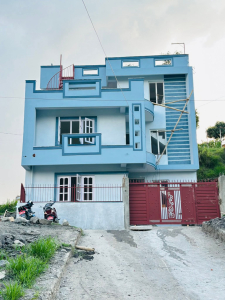


.jpg)
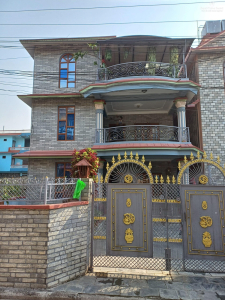
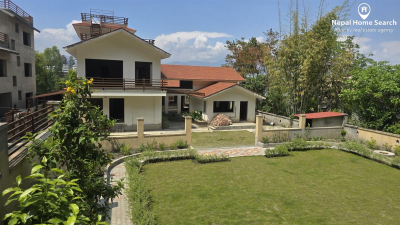

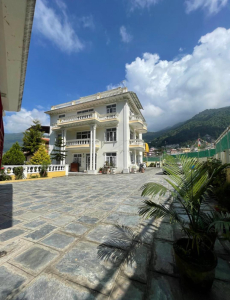

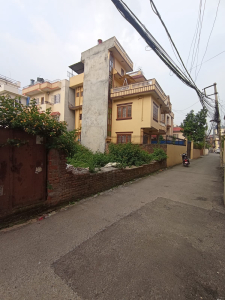





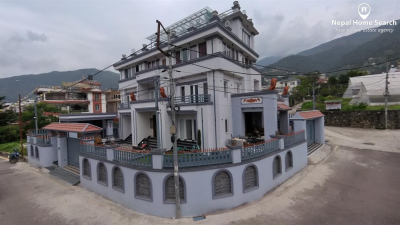




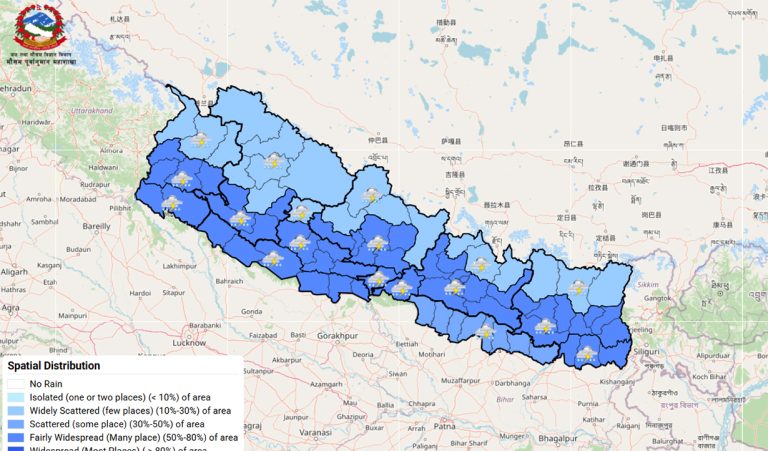
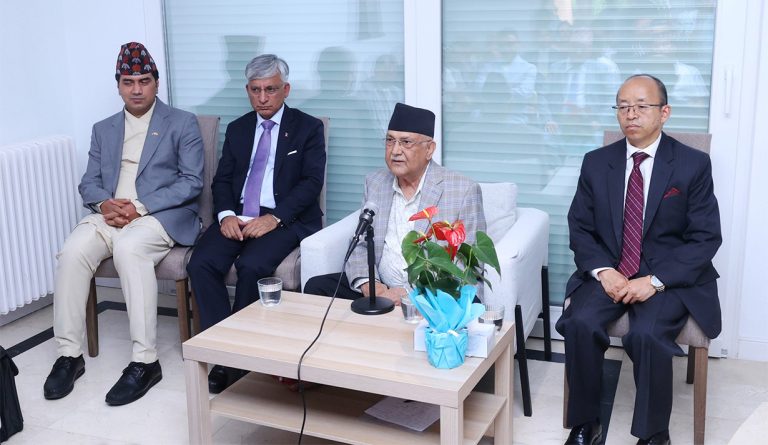
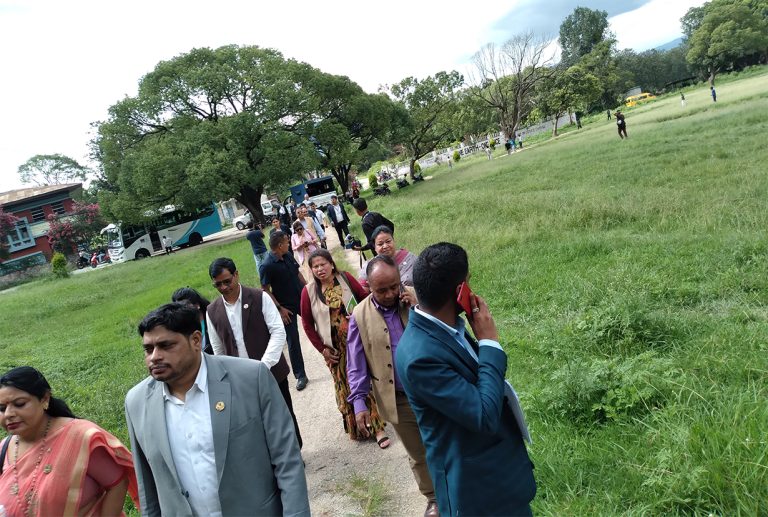
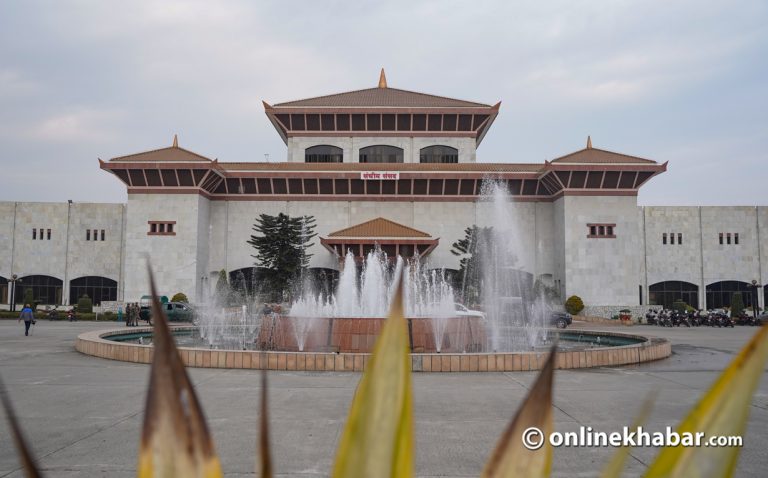

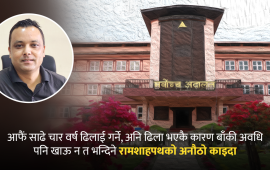

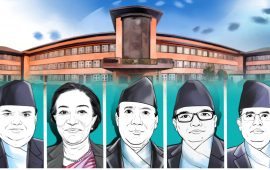
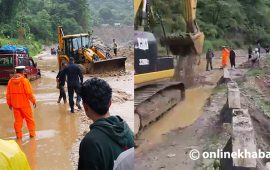

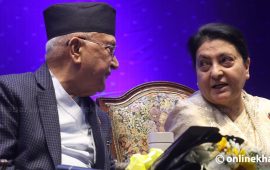
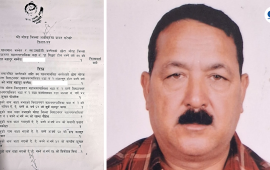







प्रतिक्रिया 4